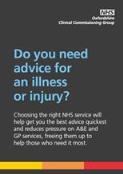Counselling and mental health
For appointment and enquiries, please email [email protected]. When requesting an appointment, you will be asked if you have a strong preference to be seen in-person or online and we will do our best to accommodate this. For those students who can be flexible and will accept either option, we will allocate the earliest appointment to you that matches your availability.
All Student Welfare and Support Services are firmly committed to embed inclusion in all of our activities. We seek to deliver services where diversity is valued and respected, with practices that are culturally competent and trauma-informed, and to foster an environment that positively advances equality. Read the Service's Equality, Diversity and Inclusion statement.
There are contacts for emergency (including out of hours) and non-emergency services for health, welfare and academic support.







